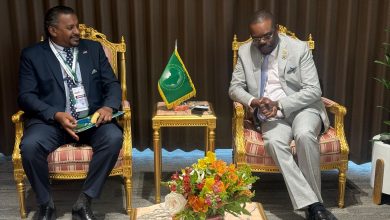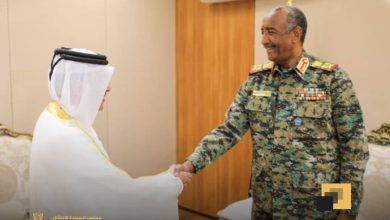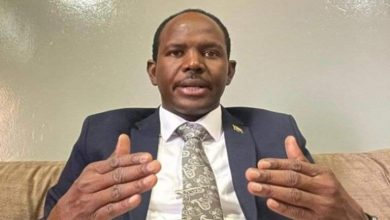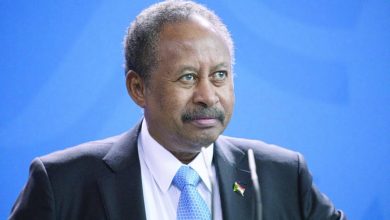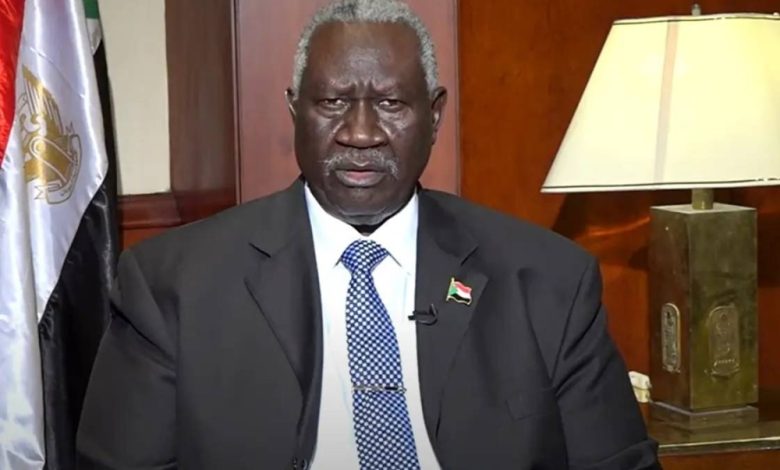
Sudan Events – Follow-ups
Vice President of the Sovereignty Council TSC Malik Aqar warned of the dangers of Sudan’s collapse, which will not be limited to the country alone, but will extend to neighboring countries and beyond.
He said that the Sovereignty Council TSC is adhering to its plan for a solution in the face of the multiplicity of initiatives that have so far failed to reach an agreement.
Malik Aqar drawing a bleak scene of any possibility of the war ending with the disintegration or collapse of the state, and said that Sudan, with its geographical location and demographic extensions, may be a gateway to a spiral of chaos in the region if the collapse occurs.
Aqar said in an interview with a group of media professionals in Port Sudan that the potential chaos in the region will mean creating hotbeds of tension and will make the region a fertile ground for organized crime, drug trafficking and human trafficking, with a significant increase in piracy activities in the region.
He affirmed that everyone is required to work to provide the appropriate conditions to end the war and reach a peace agreement between the parties, and indicated that the Sovereignty Council TSC is adopting a roadmap that has not yet been presented in any initiative.
He pointed out that the plan includes 3 phases, the first of which begins with the cessation of hostilities and the separation of the warring forces, and to achieve this, specific mechanisms must be agreed upon regarding the withdrawal of forces, their locations, and the party that will supervise the process.
The second phase focuses on the humanitarian aspect, and during it work is being done to respond to urgent needs and address cases of malnutrition that threaten millions of Sudanese.
In the third phase – which is the most difficult phase according to Aqar – the fate of the integration of the forces will be discussed, a point that he expects will take a long time in light of the presence of a large number of foreigners within the Rapid Support RSF Militia, which poses difficulties regarding sorting the Sudanese from others in those forces and the extent of the response of the countries from which they came in order to take them back.
This phase ends with a political consensus, which the VP of the Sovereignty Council TSC believes should not fall into the mistakes made in 44 political agreements throughout Sudan’s modern history, particularly those related to the foreign role and external dictates in formulating the terms of the agreement.
He affirmed that the solution and consensus will only succeed if it is between the Sudanese without any role for others that goes beyond mediation and support in reaching agreements.
Aqar believed that Hemeti does not have control over his forces, and cited the violations committed by his forces, which cannot be issued by a party that is supposed to be keen on the security of its citizens.
He pointed out that the final word belongs to the party supporting Hemeti, which is the UAE.
In this regard, he criticized the role of the UAE in the current war and said that many neighboring countries are convinced of the need to end the war to avoid its repercussions on their countries, but they do not dare to publicly declare this because of the UAE investments and money that flow into them.
He called for the necessity of achieving a historic transformation in Sudan that would transform it from an “open prison for different ethnicities” to a state that imposes respect on all citizens.
He warned that some reports affirmed the spread of 36 million weapons in Sudan, which represents a time bomb that could threaten the future of the country at any moment.
